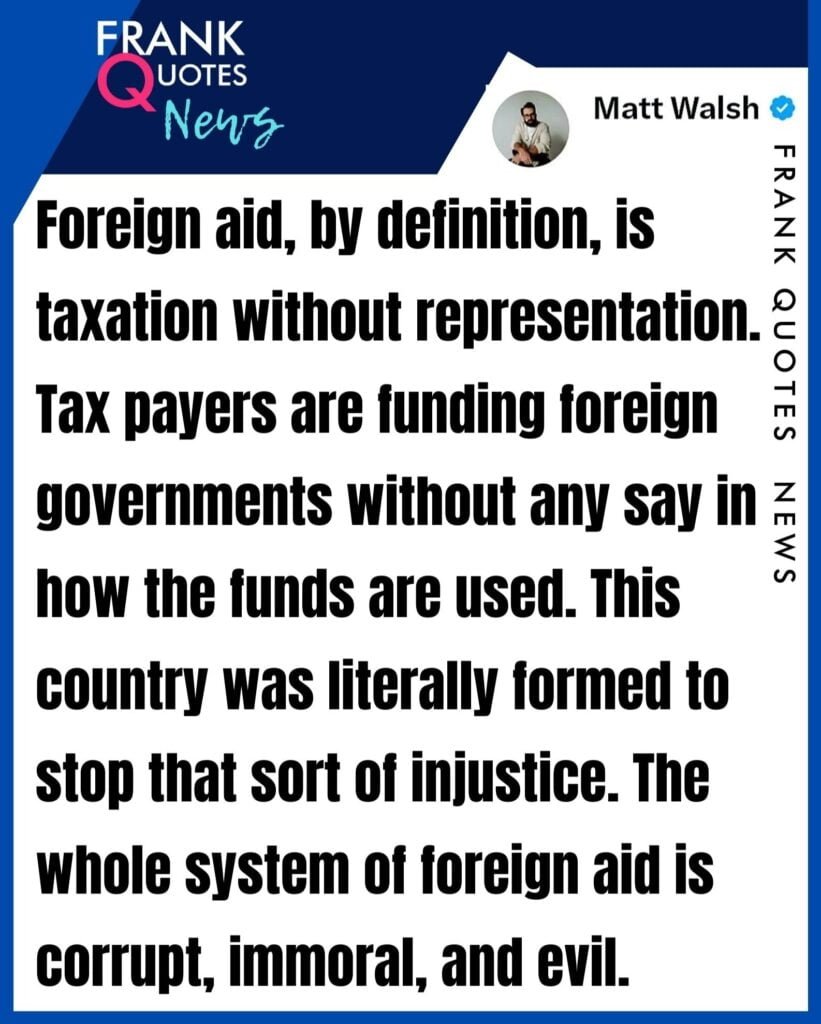As one of the wealthiest nations globally, the United States has a long history of providing aid to other countries, often in the form of financial assistance, humanitarian aid, and developmental support. However, the practice of extending aid to other nations has been a subject of debate, particularly when the US is grappling with significant debt.
Foreign aid is a contentious issue, often sparking debate and controversy. Some Conservatives argue that it amounts to taxation without representation, with taxpayers funding foreign governments without any input into how the funds are utilized. This sentiment resonates with the foundational principles of the United States, which was established to prevent such injustices.
Foreign aid, by definition, is taxation without representation. Tax payers are funding foreign governments without any say in how the funds are used. This country was literally formed to stop that sort of injustice. The whole system of foreign aid is corrupt, immoral, and evil.
It should fill you with rage to think that food is being taken off of your children’s plates and sent directly to foreign bureaucrats to be used however they see fit, in ways that will not remotely benefit you or your family. The whole thing is completely insane. I can’t believe anyone supports it.
Matt Walsh
Firstly, conservatives argue that providing aid to other countries while the US is in trillions of dollars of debt is financially irresponsible. With a national debt exceeding $28 trillion, conservatives question the wisdom of allocating billions of dollars in aid to foreign nations when there are pressing domestic needs that require attention, empowering individuals and communities to thrive independently
The system of foreign aid is corrupt. Many taxpayers feel outraged at the notion of their hard-earned money being diverted from domestic needs, such as putting food on their own children’s plates, only to be sent overseas to foreign bureaucrats who allocate the funds in ways that do not benefit American citizens or their families.
Secondly, providing aid to other countries can perpetuate dependency rather than fostering self-sufficiency and sustainable development. The continuous reliance on foreign aid can create a cycle of dependency, where recipient countries become increasingly reliant on external assistance rather than developing their own capacities and resources.

Furthermore, they highlight the need for greater transparency and accountability in how foreign aid is allocated and utilized. Without adequate oversight and monitoring mechanisms, there is a risk that aid funds are misappropriated or fail to reach intended beneficiaries, undermining the effectiveness of assistance efforts.
Increased funding is not the solution; it’s time for a complete overhaul of the foreign aid system.





Leave a Reply
You must be logged in to post a comment.